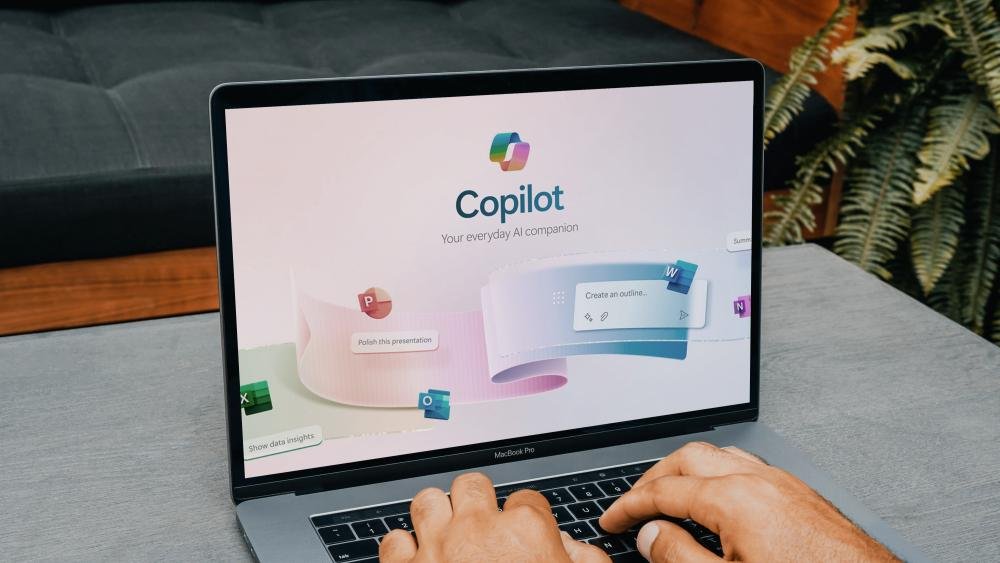Artificial Intelligence (AI) in the classroom has been a major topic for the past few years.
Source: Youtube

UNIVERSITY PARK, Pa. — Teaching and Learning with Technology (TLT) has named 15 recipients of the 2025 Faculty Engagement Awards with this year’s theme of “Generative Artificial Intelligence (AI) for Teaching including Microsoft Copilot 365.” Recipients will collaborate with TLT to experiment with AI-driven tools to support course planning, content design and instructional delivery.
“We’re excited to work with this year’s award recipients to explore how generative AI tools like Microsoft Copilot 365, ChatGPT Teams, and Adobe Firefly can enhance pedagogy, streamline workload, and improve student engagement,” said Amy Kuntz, instructional designer with Teaching and Learning with Technology. “Our focus will be on identifying best practices, understanding the limitations, and assessing the impact of these technologies in ways that are both meaningful and student-centered.”
The recipients of the 2025 Faculty Engagement Awards are:
TLT’s Faculty Engagement Awards are offered annually around a theme that combines sound pedagogy and digital tools. To learn more about the Faculty Engagement Awards, contact Amy Kuntz at aer13@psu.edu.

The Jupiter supercomputer at the Jülich Research Centre, Germany, September 5, 2025.
Getty Images/INA FASSBENDER/AFP
As reported by the European Commission’s press service
At the Jülich Research Center in Germany, on September 5, the ceremonial opening of the supercomputer JUPITER took place – the first in Europe to surpass the exaflop performance threshold. The system is capable of performing more than one quintillion operations per second, according to the European Commission’s press service.
According to the EU, JUPITER runs entirely on renewable energy sources and features advanced cooling and heat disposal systems. It also topped the Green500 global energy-efficiency ranking.
The supercomputer is located on a site covering more than 2,300 square meters and comprises about 50 modular containers. It is currently the fourth-fastest supercomputer in the world.
JUPITER is capable of running high-resolution climate and meteorological models with kilometer-scale resolution, which allows more accurate forecasts of extreme events – from heat waves to floods.
In addition, the system will form the backbone of the future European AI factory JAIF, which will train large language models and other generative technologies.
The investment in JUPITER amounts to about 500 million euros – a joint project of the EU and Germany under the EuroHPC programme. This is part of a broader strategy to build a network of AI gigafactories that will provide industry and science with the capabilities to develop new models and technologies.
It is expected that the deployment of JUPITER will strengthen European research-industrial initiatives and enhance the EU’s competitiveness on the global stage in the field of artificial intelligence and scientific developments.
More interesting materials:
THE Philippines cannot rely on new technology alone to thrive in the age of artificial intelligence. Strong governance policies must come first — this was the central call of the 2025 Development Policy Research Month (DPRM), which opened on Sept. 1 with a push for AI rules that reflect national realities.
“Policy research provides the guardrails that help governments adopt technology responsibly,” said PIDS president Dr. Philip Arnold Tuano. Without such guardrails, he warned, the benefits of AI may never outweigh the risks.

CONFERENCE HIGHLIGHT The 2025 Development Policy Research Month kicked off with a push for AI rules that reflect the country’s realities. PHOTO FROM PIDS
Established under Proclamation 247 (2002), DPRM highlights the role of policy research in shaping evidence-based strategies. This year’s theme, “Reimagining Governance in the Age of AI,” underscores that while AI offers tools for efficiency and transparency, policies must come first to address risks such as digital exclusion, bias, cybersecurity threats, and workforce displacement.
PIDS, as lead coordinator, works with an interagency steering committee that includes the BSP, CSC, DBM, DILG, legislative policy offices, PIA, PMS, and now the Department of Science and Technology, which joins for the first time, given its role in AI research and governance.
The highlight is the 11th Annual Public Policy Conference on Sept. 18 at New World Hotel Makati, featuring global experts. Activities nationwide will amplify the campaign, supported by the hashtag #AIforGoodGovernance.
Learn more at https://dprm.pids.gov.ph.

Artificial Intelligence (AI) in the classroom has been a major topic for the past few years.
Source: Youtube


The Guardian view on Trump and the Fed: independence is no substitute for accountability | Editorial
Building Trust in Military AI Starts with Opening the Black Box – War on the Rocks


SDAIA Supports Saudi Arabia’s Leadership in Shaping Global AI Ethics, Policy, and Research – وكالة الأنباء السعودية


Journey to 1000 models: Scaling Instagram’s recommendation system


Mumbai-based Perplexity Alternative Has 60k+ Users Without Funding


VEX Robotics launches AI-powered classroom robotics system


Happy 4th of July! 🎆 Made with Veo 3 in Gemini


Kayak and Expedia race to build AI travel agents that turn social posts into itineraries


Macron says UK and France have duty to tackle illegal migration ‘with humanity, solidarity and firmness’ – UK politics live | Politics


OpenAI 🤝 @teamganassi